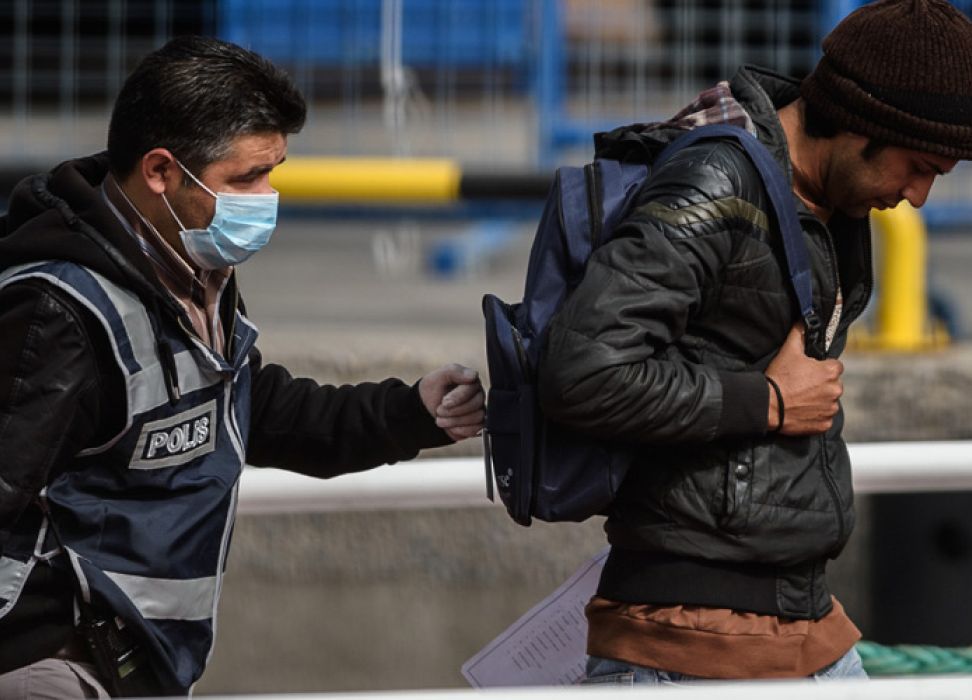Deportation is an unworkable solution for migration
16 July 2018

Involuntary returns and reintegration in countries of origin have repercussions on the human rights of migrants, says UN migration expert, Felipe González Morales.
“If return programs do not go hand-in-hand with solid reintegration programs and the root causes of irregular migration persist, migrants, including those who have already been returned, will continue to risk their lives by undertaking dangerous journeys,” says Felipe González Morales, the Special Rapporteur on the rights of migrants.
In his latest report, González Morales says that States too often opt to return migrants to their countries of origin or third countries, instead of prioritizing more human rights-based alternatives such as migrants’ regularization.
Deportation, he adds, is not a desirable or viable option for managing migration: it is more costly and difficult to put into practice than the social inclusion of migrants.
The expert also believes that the efficiency of reintegration programs largely depends on the voluntary nature of the returns and, ultimately, can contribute to reducing the rates of people who remigrate.
For González Morales, long-term solutions and safe, regular, accessible and affordable channels are required to ensure the protection of the human rights of migrants, instead of "quick fixes" such as readmission agreements.
The expert further stresses that families should never be separated unless separation is necessary to guarantee the best interests of the child. Children should not be detained based on their or their family's migration status and, in fact, there should be alternatives to deprivation of liberty and family-friendly measures instead.
“Children cannot be returned except when it has been determined, through appropriate processes, that it would be in their best interests,” he says.
González Morales points out that States increasingly resort to expulsion and enter into bilateral and regional readmission agreements with countries of origin and third countries. In this context, migrants are often expelled in violation of international human rights principles and norms, which include the prohibition of collective expulsions and the principle of non-refoulement.
Non-refoulement prohibits States from forcing migrants to return to countries when there are substantial grounds for believing that they would be at risk of persecution, torture, ill-treatment or other serious human rights violations.
Upon arrival into their destination countries, migrants are often forced into repatriation. They are issued entry bans and lose their rights to emergency shelter, are detained and are given no opportunity to obtain a residence permit through regularization channels.
“The countries of destination usually attribute the responsibility of leaving the country to the migrants themselves, although many rejected asylum seekers come from countries that are in a precarious situation of lack of freedom, security and basic conditions for a decent life,” González Morales adds.
However, over the years, destination countries have labelled a large number of countries of origin as being “safe” and migrants from those countries who seek asylum are confronted with accelerated asylum procedures during which a higher burden is placed on applicants to prove their refugee status.
In the European Union, Directive 2008/115/CE and the subsequent 2017 action plan required Member States to issue an expulsion decision to undocumented migrants – unless their status was regularized – and to make the most out of the flexibility offered by the Directive. In the United States, tighter border security measures have meant that, although deportations to Mexico and Central America did not increase in 2017, apprehensions of undocumented migrants increased by 40 percent in the first seven months of 2017 compared to figures from the previous year.
In his report, González Morales makes recommendations to States on how to ensure that return procedures respect human rights by making sure that the conditions of expulsion are safe for migrants; that returns are voluntary; that the countries of origin and host countries cooperate for the returns; and that migrants are better received and assisted to reintegrate their countries or origin.
16 July 2018



